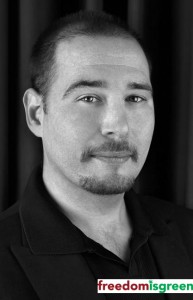5/29/2011 – The Department of Justice is making one thing clear: individual medical marijuana patients are not a priority, at least for the moment. So how are they supposed to acquire cannabis? What is now emerging seems to be an expectation from DOJ that seriously ill Americans will engage in home cultivation or find a caregiver to grow for them.
This is a proven technique but it will be an uncomfortable point for much of the existing multi-billion dollar medical marijuana industry. There are also major implications for New Jersey, Delaware and the District of Columbia because their compassionate use laws force patients into centralized cannabis dispensary systems.
A set of interviews last week with US Attorneys Michel Ormsby in Washington and Dennis Burke in Arizona have added significant depth to a debate that has national importance. They were among eight federal prosecutors who sent letters to state officials about their medical marijuana policies.
After a lead-up in a National Public Radio interview, Ormsby went a step further with the reporter:
” In 2009, the Department of Justice indicated that it would be a low priority to prosecute anyone who was complying with state medical marijuana laws,” Jay Rorty of the American Civil Liberties Union explains. He says the 2009 memo from then-Deputy Attorney General David Ogden made advocates think the federal government wouldn’t interfere with state medical marijuana stores.
U.S. Attorney Michael Ormsby from Washington state disagrees with that interpretation. “I think the ACLU takes that statement out of context,” he says. According to him, the memo means the federal government won’t go after patients who are growing their own marijuana — but retail stores were never part of that exception. read full
Still, the letter moved Governor Chris Gregoire to veto a marijuana dispensary bill that was passed by the Washington Legislature. That letter implied that state employees could risk of federal prosecution; a unique point among all of the recent communications.
Three thousand miles away the WA letter caused Governor Chris Christie in New Jersey to suspend full implementation of his state’s compassionate use law.
New Jersey’s Attorney General Paula Dow sent her own letter to the Department of Justice in April. It seeks clarification about Garden State employees. But there has been no reply from the DOJ or the local US Attorney. Governor Christie is waiting for a response until the six cannabis facilities (approved by the state in March) will be allowed to proceed.
But why were the employees mentioned at all? An article published at a local Arizona news source, Awatukee.com, sheds some light:
“The Washington law had state employees involved in a number of different inspections and grading functions,’’ Ormsby said, with workers actually handling the drug. And Ormsby pointed out that the letter sent by Gov. Christine Gregoire to him and Jenny Durkan, the other U.S. attorney in that state, specifically asked how those provisions of the law would put state workers at risk. read full
Governor Jan Brewer in Arizona has also been speaking loudly to the media about her perceived threat to state employees based on the same Washington state letter. However, the federal prosecutor in AZ was left baffled:
But Burke, in an interview with Capitol Media Services, said his letter simply spelled out the priorities his office has in going after those who sell, transport or use marijuana. More to the point, he said that letter never mentioned state workers.
“It’s fair to read into my letter what I included and what I didn’t,’’ he said. “And if I didn’t include state employees, I think that’s telling in itself.’’
And Burke said there was a simple way of dealing with the question.
“You would think that a letter back from [AZ] Attorney General Horne, as opposed to ‘I’m going to file a lawsuit and have a press conference,’ might have been a better course of action,’’ he said. read full
As a guide to all of their communications about medical marijuana the US Attorneys turn to a now infamous memo from Deputy Attorney General David Ogden. The Department of Justice published it the same day it was released back in October 2009, right on their very own blog. (Yes, DOJ has a blog and even a Twitter feed.) Here is the section of interest:
For example, prosecution of individuals with cancer or other serious illnesses who use marijuana as part of a recommended treatment regimen consistent with applicable state law, or those caregivers in clear and unambiguous compliance with existing state law who provide such individuals with marijuana, is unlikely to be an efficient use of limited federal resources. On the other hand, prosecution of commercial enterprises that unlawfully market and sell marijuana for profit continues to be an enforcement priority of the Department. (read the Ogden memo in full)
Again, all of the eight letters from US Attorneys seem to reiterate the point that individual patients are the lowest priority. And the Ogden memo does seem to lean towards home cultivation.
Burke is also comfortable allowing medical marijuana patients in Arizona to continue registering with the state:
More significant, [AZ US Attorney] Burke said that Humble [AZ Health Director], after reading that May 2 letter, was not alarmed about it or even worried about how it would affect his staffers who are processing the permits for those who want to use marijuana as well as those who want to operate dispensaries or even cultivate the drug.
“Humble blogged about it and seemed to read through the lines in my letter and say, ‘We’re going to keep proceeding,’ ’’ Burke said.
In fact, Humble told Capitol Media Services at the time his agency intends to continue issuing I.D. cards allowing those with a doctor’s recommendation to possess and smoke marijuana. As of this week, about 4,000 applications had been processed. read full
All of the Arizona patients will presumably start home gardens, find a caregiver or access the underground market.
Delaware, New Jersey and Washington DC may need to re-evaluate their compassionate use laws based on the current federal stance. They included no provisions for private cultivation.
The New Jersey law seems to allow legal protections only if registered patients acquire cannabis from an approved facility. Six medical marijuana Alternative Treatment Centers are meant to serve NJ’s dense population of about 9 million residents. These are just the kind of big-money operations that the Fed does not like.
Federal prosecutors and some governors are now walking a razor’s edge between Constitutions in the battle over medical marijuana. Parties on both sides are attempting to spin the conflict between state laws and federal law to their advantage.
There has been much more than a rattling of paper sabers. The Drug Enforcement Administration (DEA) has conducted hundreds of raids on state medical marijuana businesses. Recent DEA raids also seem to have been timed for political current events. In Washington and Montana fully armed federal agents stormed dispensaries just as legislation was being considered by elected officials.
But not every state with a compassionate use law has seen federal activity. One thing that has become painfully obvious in the recent flap is that these laws are enforced through the discretion of a just few powerful individuals based on their personal political views. Seriously ill Americans who need cannabis therapy remain caught in the crossfire. This fact will add to the already heavy pressure on Congress and President Obama to address the medical marijuana issue.
Until a truly consistent policy is crafted state officials can immediately employ two methods to protect their residents from federal interference: 1) Allow patients or caregivers to grow medical cannabis in private homes and 2) Stop arresting and/or prosecuting any patient who is possession of a state authorized amount of cannabis.
Commentary by Editor Chris Goldstein
 Chris Goldstein is a respected marijuana reform advocate. As a writer and radio broadcaster he has been covering cannabis news for over a decade. Questions? [email protected]
Chris Goldstein is a respected marijuana reform advocate. As a writer and radio broadcaster he has been covering cannabis news for over a decade. Questions? [email protected]



